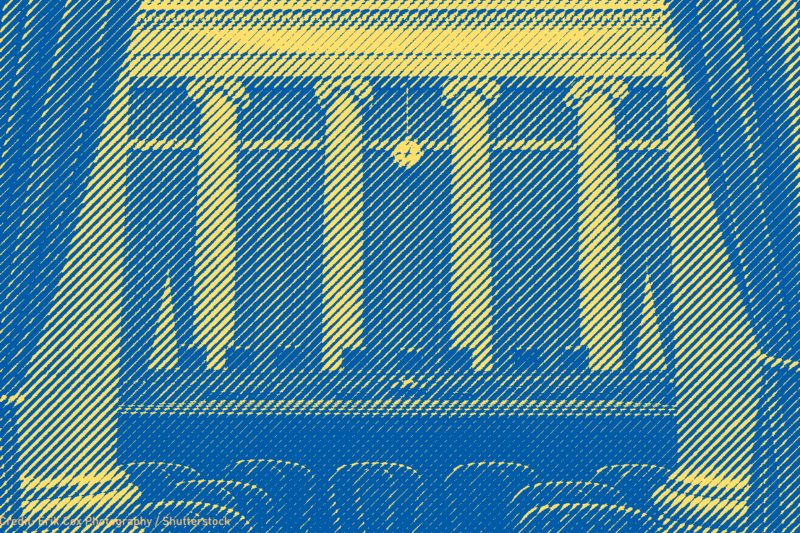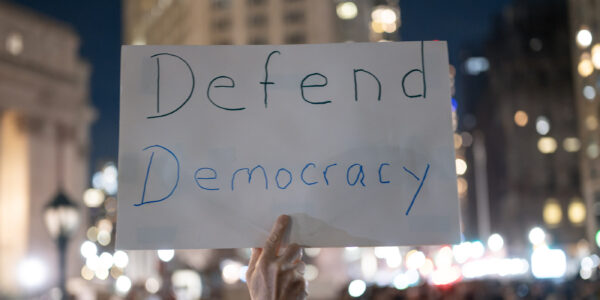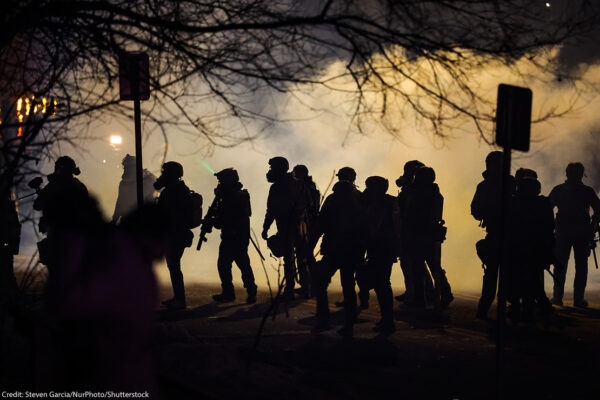
Three days after Donald Trump was elected, we at the ACLU told him, in a full-page letter in The New York Times that if he pursued his campaign promises to invade constitutional rights, “you will have to contend with the full firepower of the ACLU at your every step.” We filed the first case challenging his Muslim ban, just one week into his presidency — and obtained the first injunction against that unconstitutional ban. And we haven’t stopped suing Trump since – over voting rights, immigrants’ rights, religious freedom, and transgender rights. Now we’ll be seeing him in the Supreme Court. In all five of our cases this term, Donald Trump is on the opposite side. And in three of them, his administration has broken from decades of precedent.
Trump v. International Refugee Assistance Project is the Trump administration’s appeal from our successful challenge to the travel ban. In May, the U.S. Court of Appeals for the Fourth Circuit ruled that the ban, which denies entry to 180 million people from six overwhelmingly Muslim countries, violates the Establishment Clause’s “cardinal command” that government neither favor nor disfavor any specific religion. As a candidate, Trump promised to ban Muslims because “Islam hates us” and explained that he would do so by “talking territories.” As president, he did just that. The government’s appeal argues that the Supreme Court should ignore everything that Trump and his aides said about the ban’s targeting of Muslims, and should defer blindly to the president’s action. No president has ever asserted the right to use the immigration power to target a particular religion. At bottom, the case asks whether the courts will act as a check on abuse of presidential power or a rubber stamp.
On Sept. 24, about two weeks before the case was to be argued, the administration issued a new travel ban, which extended the ban indefinitely for six predominantly Muslim countries, while adding bans on (already nonexistent) immigration from North Korea and on government officials from Venezuela. This last-minute action led the court to postpone the argument so the parties could submit briefs on whether the new order renders the government’s appeal moot. In our view, this third version of the ban is still a Muslim ban, and still illegal.
Husted v. A. Philip Randolph Institute challenges Ohio’s practice of purging voters from the voter registration rolls if they fail to vote in a midterm election, fail to respond to a notice sent in the mail, and then fail to vote in the next two elections — even in cases where Ohio’s own records show that the voter has not moved and remains eligible to vote. In the national motor voter law, Congress sought to end precisely this practice of purging eligible voters. For 20 years, under Republican and Democratic administrations, the Justice Department interpreted that law to prohibit states from engaging in this conduct. The Justice Department under the Obama administration filed a brief in 2016 supporting our suit against Ohio in the lower court. But under Donald Trump and Attorney General Jeff Sessions, the Justice Department has reversed itself, and is now defending Ohio’s “right” to purge eligible voters from the rolls for no good reason. Never before has an administration argued that states can purge voters because they chose not to vote.
Masterpiece Cakeshop v. Colorado Civil Rights Commission asks whether there is a First Amendment right to discriminate. A bakery refused to sell a wedding cake to David Mullins and Charlie Craig, a gay couple seeking to celebrate their wedding, in violation of a Colorado law requiring businesses that open their doors to the public not to discriminate. The bakery argues that it speaks through its cakes, and cannot be compelled to “speak” by providing a cake for weddings of same-sex couples, even though it routinely sells cakes for weddings of different-sex couples. The Colorado courts ruled, as have a host of other courts hearing similar claims by opponents of marriage equality, that the bakery has no right to exempt itself from a neutral nondiscrimination law. One of the Justice Department’s most solemn responsibilities is to enforce nondiscrimination laws. It has never before in history sided with anyone seeking a constitutional exemption from antidiscrimination laws. Yet here, too, the Trump administration broke with precedent to support our opponent, in defense of discrimination.
In Jennings v. Rodriquez, to be argued on Oct. 3, the Trump administration contends that it can indefinitely lock up immigrants who are fighting removal, without providing them a hearing in which to prove that they pose no flight risk or danger to the community. Traditionally, detention is permitted pending criminal or immigration proceedings only where there is a reason to prevent the individual from fleeing or endangering others in the community. But the government argues that it can put foreign nationals in detention for prolonged periods without making any showing that they are pose any threat.
In a fifth case, Carpenter v. United States, the Trump administration argues that its agents can obtain information from cell phone providers revealing where a cell phone user traveled for weeks and months at a time. The case asks whether privacy will survive in the digital era. Before cell phones, the government had no ability to track your location over several months. Now it can. And it’s claiming that it should have power to obtain that tracking information from the phone company — without any showing as required by the Fourth Amendment that the individual may have engaged in criminal conduct.
The government argues that cell phone users voluntarily give up information about their daily whereabouts to the phone company, and therefore this information is not private -- even though such information can reveal visits to a psychiatrist, an abortion facility, an Alcoholics Anonymous meeting, or a lover. The government’s logic would mean federal agents and state and local police could also demand from service providers the contents of our emails, our Google searches, the websites we have visited, and the magazines and news articles we have read online. In the ACLU’s view, the Fourth Amendment affords us at least the level of privacy we have had for the two centuries that preceded digital technology, and that the government needs a warrant before it can obtain this information.
Trump has shown little respect for constitutional rights since taking office. It is our responsibility as citizens to stand up in defense of civil liberties, civil rights, and the rule of law. The framers of the Constitution created independent courts so that they could act as a check on executive officials. This term, the Supreme Court will be asked to decide whether it sides with Trump, or with equality, freedom of religion, privacy, liberty, and the right to vote. We know where we stand.


